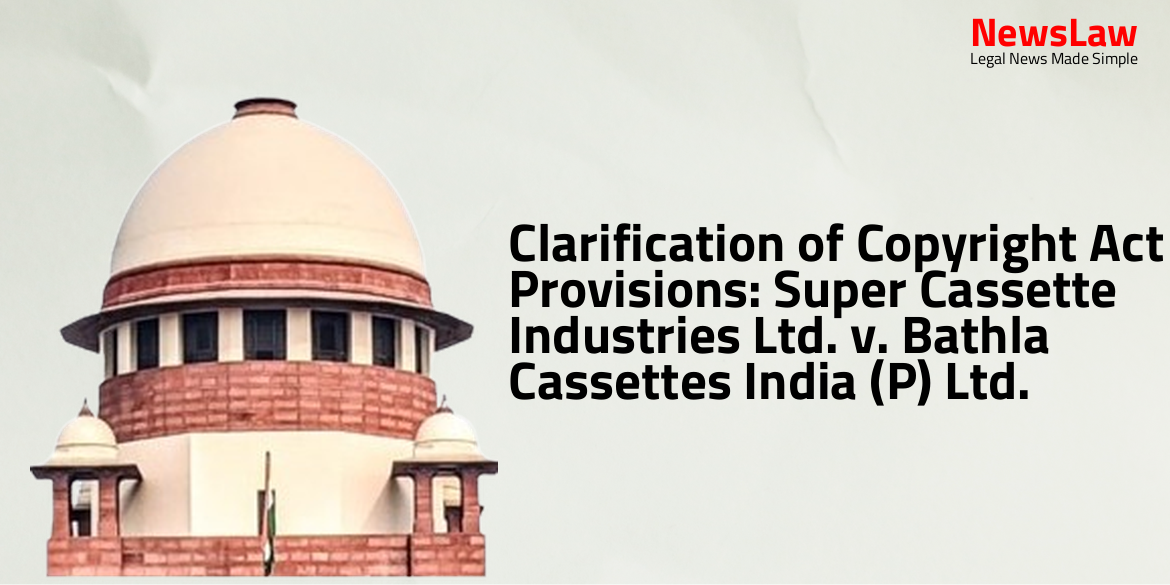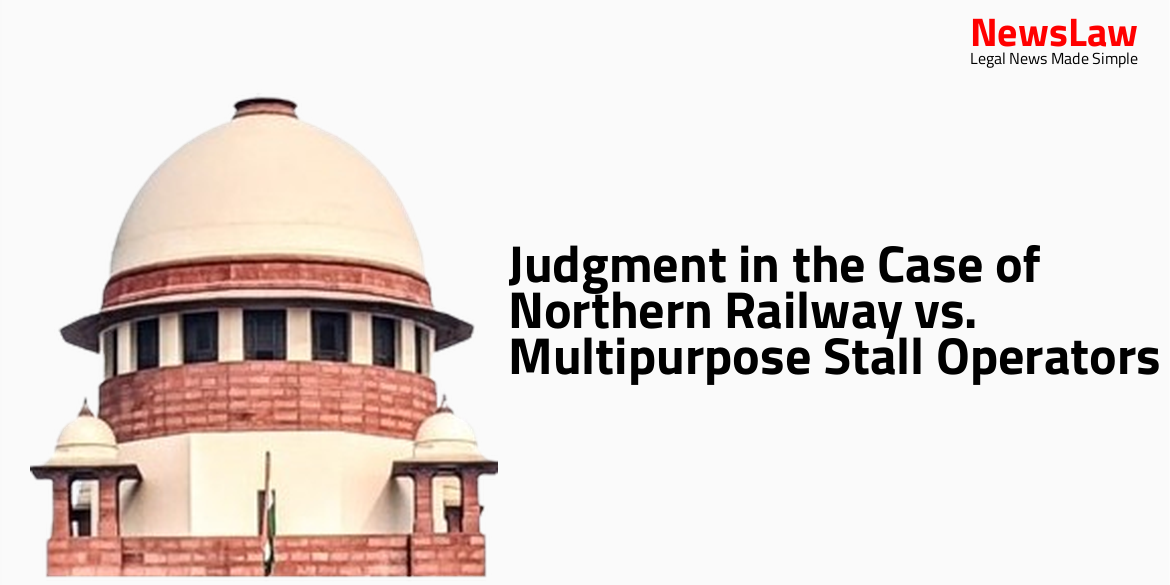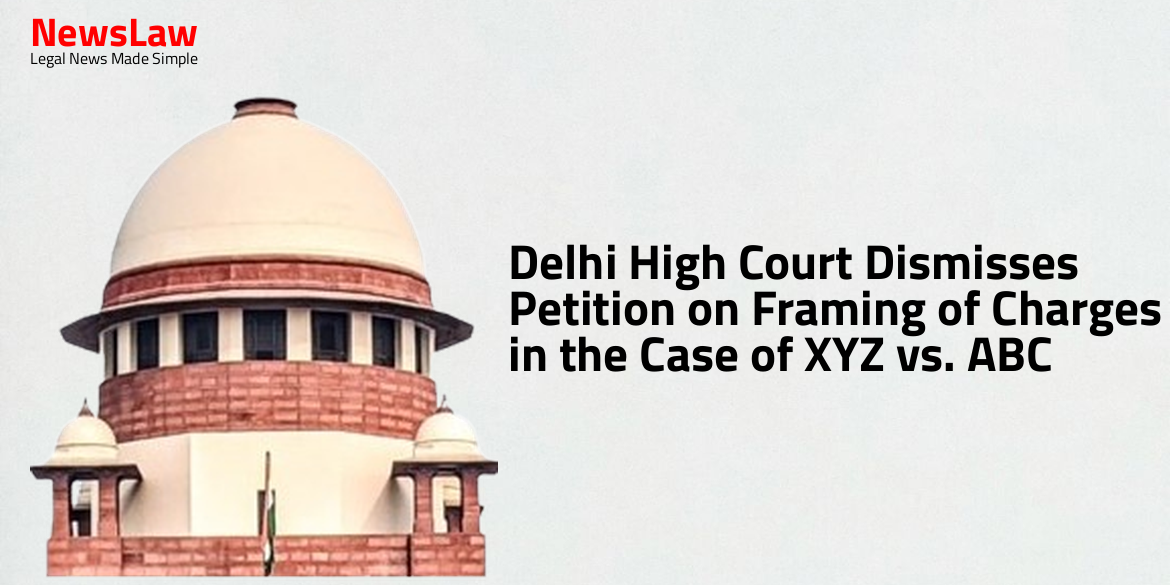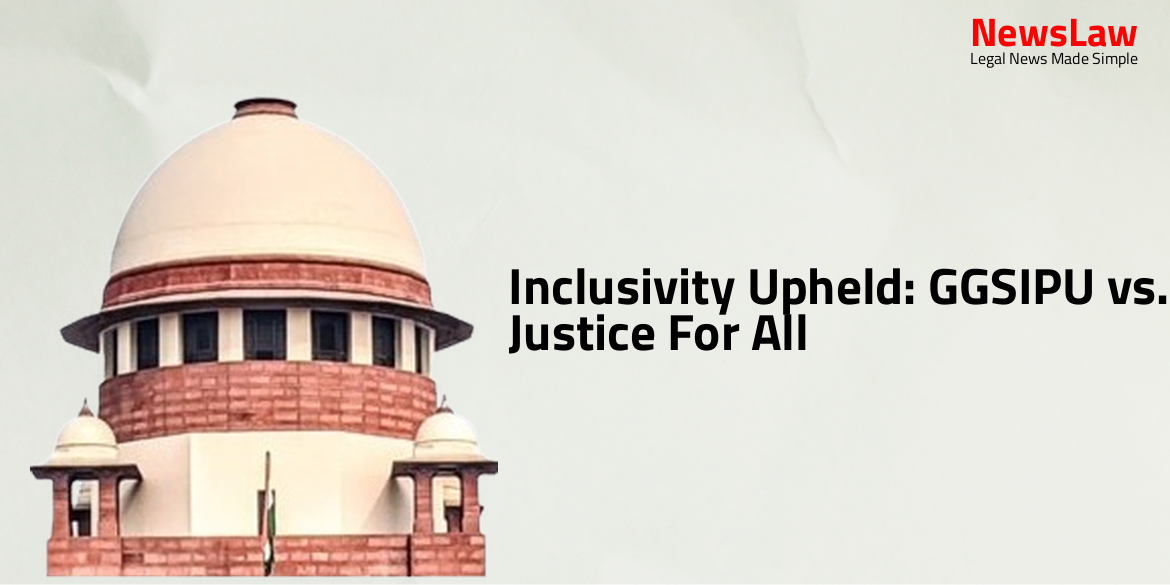Delve into the complexities of copyright law with the recent landmark judgment by the Delhi High Court in the case of Super Cassette Industries Ltd. v. Bathla Cassettes India (P) Ltd. The court’s interpretation and clarification of the provisions of the Copyright Act offer valuable insights for all stakeholders involved in intellectual property disputes.
Arguments
- Defendant’s counsel argued that plaintiff’s suit under Section 60 of the Act could not continue once they had filed their proceedings with due diligence.
- Plaintiff’s contention of seeking a larger set of reliefs was refuted by defendant, stating that Section 60 itself allowed for a declaratory suit with injunction and damages.
- The cause of action in the plaintiff’s suit was based on alleged notices sent by defendant, making it a Section 60 suit and not a composite suit.
- Plaintiff sought a declaration that defendant does not own copyright, which would be decided in the defendant’s suit under Section 55 of the Act.
- No prejudice would be caused to plaintiff as they could file a counterclaim for damages in defendant’s suit if defendant is proven not to own copyright.
- Defendant argued that plaintiff’s claim for damages lacked supporting pleadings and there was no mention of losses in the plaint due to threats of legal proceedings.
- Plaintiff’s suit was instituted within 10 days of notices being issued, and defendant had given an undertaking, hence damages could not have been suffered during that time.
- If plaintiff’s suit continued, proviso to Section 60 of the Act would become unnecessary as the issue of copyright infringement could be decided in one proceeding.
- The decision in the case of M/s Mac Charles (I) Ltd. made it clear that once action is taken for infringement, Section 60 suit would not survive.
- Defendant filed an application under the CPC seeking rejection of the plaint in terms of proviso to Section 60, arguing that the relief sought by plaintiff was beyond the scope of Section 60 of the Act.
- Mere titling of the suit under Section 60 could not determine the essence of the suit, as it was considered a composite suit.
- Plaintiff’s counsel suggests the option of seeking damages through a counterclaim in the junior suit if the court does not accept their sub silentio argument.
- Section 60 allows for the aggrieved party to file a declaratory suit, seek an injunction, and recover damages caused by groundless threats.
- The plaintiff’s suit aligns with the provisions of Section 60 as it seeks a declaration that the utilization of certain works does not infringe the defendant’s rights.
- The language used in the prayer of the suit mirrors that of Section 60, reinforcing its alignment with the law.
- The case of Super Cassettes v. Bathla was cited by the defendant, but plaintiff’s counsel argues that it was focused on the scope of injunction under Section 60 and upheld the possibility of a comprehensive suit.
Analysis
- The Delhi High Court in Super Cassette Industries Ltd. v. Bathla Cassettes India (P) Ltd. clarified the juridical philosophy behind Section 60 of the Copyright Act.
- If a party issues a legal notice alleging copyright violation, the recipient must respond or face consequences.
- A party facing continuous threats may seek a declaration to address the hanging threat.
- A suit for infringement of copyright will make a prior groundless threat suit ineffective.
- The commencement of an infringement action after a groundless threat suit is filed renders the groundless threat suit ineffective.
- The proviso in Section 60 specifies that the section does not apply if the person making the threat initiates an infringement action with due diligence.
- Due diligence is a crucial element in determining the effectiveness of a groundless threat suit.
- Previous court decisions, including Mac Charles and Super Cassettes v. Bathla, support the notion that an infringement suit by the threatening party renders the groundless threat suit futile.
- The necessity for due diligence in initiating an infringement action is emphasized by various court decisions.
- The issue of whether a groundless threat suit can continue if an infringement suit is filed by the defendant has been extensively deliberated upon by multiple courts.
- The High Courts of Bombay, Karnataka, and Madras, along with the Supreme Court, have evaluated and clarified the interplay between groundless threat suits and infringement actions.
- The essence of due diligence in a Section 60 proviso suit is crucial, requiring responsible assertion by the defendant of their copyright claims.
- If a subsequent suit for copyright infringement is filed by the person claiming copyright, the Section 60 suit for groundless threat becomes infructuous.
- The law mandates that once infringement proceedings are initiated by the copyright claimant, the Section 60 remedy for groundless threats ceases to operate.
- The proviso to Section 60 clarifies that the section does not apply if the person making threats commences and diligently prosecutes an action for infringement of the claimed copyright.
- The assessment of due diligence in these cases is based on the specific facts and circumstances, rather than a formulaic approach.
- The plaintiff’s claim in a Section 60 suit becomes unsustainable if a subsequent suit is filed by the defendant with due diligence in challenging the alleged threats.
- The delay in initiating legal action and the grounds for issuance of threats are crucial factors in determining the outcome of Section 60 suits.
- A comprehensive understanding of the essence of Section 60 and its proviso is essential in adjudicating cases involving groundless threats and copyright infringement.
- Proper framing of pleadings and adherence to the legal provisions under Section 60 are vital for the maintenance of suits in copyright disputes.
- The court’s consideration of the maintainability of Section 60 suits is contingent on factors like timely legal action, factual circumstances, and diligence in pursuing copyright claims.
- Defendant’s suit for copyright infringement falls within the scope of the proviso to Section 60.
- The ongoing bitter dispute between the parties necessitates addressing the infringement claim in the interest of justice.
- A cross suit filed by Saregama is also pending adjudication before the Court.
- This decision is important to resolve the disputes between the parties effectively.
Decision
- The plaintiff is at liberty to file a counter-claim in CS(COMM) 811/2018 and lead evidence as per the law.
- Judgment to be uploaded on the court’s website.
- The present suit by the plaintiff is no longer valid and is rendered infructuous.
- During the pendency of CS(COMM) 811/2018, the defendant is directed not to issue any letters/notices regarding the claimed rights.
- No comments made on the rights and contentions of the parties related to copyright claim, which will be decided post-trial.
- Section 60 of the Copyright Act applied for rendering the plaintiff’s suit infructuous.
- The suit and application are deemed infructuous.
Case Title: SAREGAMA INDIA LIMITED Vs. ZEE ENTERTAINMENT ENTERPRISES LIMITED (2024:DHC:4600)
Case Number: CS(COMM)-764/2017



